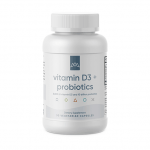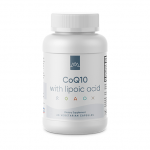Valentine’s Day Chocolate = Heart Strong?
- Dark Chocolate’s Health Benefits
- Give Your Heart a Helping Hand with Chiropractic Care
- 9 Ways to Support Your Heart and Have a Fun Valentine’s Day
Flowers and chocolate. Quick: What holiday does that bring to mind?
You probably guessed Valentine’s Day, and science supports your choice. If you gift your significant other or your mother roses and chocolate, you’ll love to know that they are likely to be evaluated more positively during this mid-February holiday compared with other times of the year. [1]
In fact, people spend about $1.7 billion on chocolates and $2.1 billion on flowers around Valentine’s Day, which also ranks highest among American holidays for flower purchases. [2]
But amidst the lavish gift-giving, don’t forget to also give your heart a little extra loving! While a heart characterizes Valentine’s Day and romanticism, this time of year becomes ideal to optimize heart health.
After all, heart disease is the leading cause of death for American men and women. [3] Researchers predict by 2020, heart disease could create 25 million deaths worldwide, making this a global epidemic. [4]
What’s equally tragic (or promising, depending on your perspective): Heart disease is mostly preventable. [5] And a good place to start is something you might give someone else and probably even yourself on Valentine’s Day: Chocolate.
Dark Chocolate’s Health Benefits
Is chocolate, healthy? Yes: Cocoa and dark chocolate contain polyphenols – micronutrients in plant foods that support heart health – that provide antioxidant and anti-inflammatory benefits. [6] [7]
To be fair, polyphenols come in plenty of foods. Berries have them. So do green or black teas, nuts, seasonings like cloves, certain vegetables, and (if you imbibe) red wine. [8] But let’s be honest: Chocolate tastes so good, and Valentine’s Day becomes synonymous with the sweet stuff.
Cocoa polyphenols also help release nitric oxide, a compound that helps your blood vessels dilate so that blood can flow to vital organs like your heart, brain, and down there. [9]
Those and other nutrients (including heart-healthy minerals such as magnesium, copper, potassium, and iron as well as mood-boosting theobromine) can help improve your lipid profile and blood pressure, supporting heart health. [10] [11]
Chocolate can also support gut health (by reducing intestinal inflammation) and protect your brain. [12]
Eating a few pieces – emphasis on moderation! – can even help you lose weight: Chocolate can curb your appetite, satisfy your sweet tooth, lower stress levels, and reduce the inflammation that contributes to weight gain. [13]
If you’re thinking chocolate might be your new favorite health food, keep in mind one big caveat: Most chocolate varieties you find on drugstore or supermarket shelves don’t make the heart-healthy grade.
“If you want the benefits of these flavanols in your diet, you’ve got to get the real deal chocolate—high-cocoa-content dark chocolate,” says Jonny Bowden, Ph.D., in The 150 Healthiest Foods on Earth.
Bowden recommends looking for chocolate with a 60 or even higher percentage of cacao. “The more chocolate is processed, the more the beneficial flavonoids are lost,” says Dr. Bowden.
Find a minimally processed bar (preferably raw) with very few ingredients and that contains around five grams of sugar per serving. Moderation becomes key here: Most bars contain more than one serving! And enjoy. Pleasure is a nutrient for your mood and mindset!
Give Your Heart a Helping Hand with Chiropractic Care
Chocolate makes a great way to give your heart some loving, but so can a visit to your chiropractor. Your spine and heart health are more intricately related than you might imagine.
Atherosclerosis, or the buildup of fatty material inside your arteries, can restrict blood flow to your heart or brain. [14] But it can happen anywhere where arteries divide into smaller units.
Your lumbar spine is especially susceptible to atherosclerosis. [15] That can create problems for your intervertebral discs, which represent the largest space in the body without blood vessels.
In other words, they already have limited access to oxygen and nutrients. Any blood circulation restrictions to the tissues surrounding your intervertebral discs can result in a potential decrease in oxygen and nutrients. Those restrictions can also impair metabolic waste removal and potentially create disc degeneration.
Intervertebral discs are not supposed to have blood vessels or nerve endings. But poor circulation to your back could mean your body compensates by creating new blood vessels that invade damaged intervertebral discs.
Those blood vessels are often accompanied by nerve fibers, which can penetrate deep into intervertebral discs and contribute to chronic back pain. In other words, chronic back pain could be an early warning sign of heart disease. When you address heart health, you reduce your risk for both problems.
Poor spinal health can also interfere with your inflammatory pathways and other measures of heart health. Chiropractic care can address many heart disease-related issues, including high blood pressure and chronic inflammation.
One study among 21 people suffering from chronic low back pain found that nine chiropractic lower back manipulations helped normalize specific inflammatory markers. [16] Other research shows that visiting a chiropractor can significantly lower high blood pressure. [17] Both of these improvements support heart health.
9 Ways to Support Your Heart and Have a Fun Valentine’s Day
While heart health may not be the sexiest topic during Valentine’s Day, this critical organ deserves some love so you can live a long, healthy life for your family, friends, and your own well-being.
“Heart disease is a complex condition that involves not only cholesterol but inflammation, blood sugar, triglycerides, and a host of other factors,” says Mark Hyman, MD, in Food: What the Heck Should I Eat?.
In other words, you need to address heart health from multiple perspectives. That needn’t become overwhelming. Whether you have heart disease or want to keep your heart functioning optimally, these nine strategies can help.
Never discontinue or modify any drug or other specific instructions without first discussing it with your healthcare practitioner.
1. Use our Advanced Plan. This eating plan provides plenty of heart-healthy foods that address your specific goals. The Advanced Plan increases your intake of healthy fats, moderates your intake of protein, and eliminates sugars, grains, and higher-sugar fruits. You’ll retrain your body to use fat as fuel, balance blood pressure, and normalize your lipid profile to support a healthy heart and prevent disease. See Align Your Health for specific foods on the Advanced Plan.
2. Incorporate plenty of anti-inflammatory foods. Among its damage, chronic inflammation contributes to metabolic syndrome (which encompasses obesity, diabetes, high blood pressure, and more) as well as heart disease. [18] Want to reduce inflammation? Start with what you eat. “Americans are consuming a diet that’s too rich in inflammatory omega-6 fats and too low in healthy omega-3s,” says Hyman in Food: What the Heck Should I Eat? “When the ratio of these two fats is lopsided, it sets the stage for chronic inflammation and disease.” Our Advanced Plan incorporates plenty of omega-3 rich foods including wild-caught fish, walnuts, flaxseed, and chia seeds as well as other anti-inflammatory foods including leafy green vegetables.
3. Create an active date. Valentine’s Day needn’t entail several hours of sitting in a crowded, noisy restaurant. Find something active to do. If the weather permits, take a long stroll downtown or your favorite neighborhood. Bowling, roller skating, and ice skating make great activities if the weather doesn’t cooperate. If your date insists on a nice dinner and then a movie or other sedentary activity, schedule a workout first thing in the morning or otherwise before your date. You needn’t hit the gym or spend hours with our MaxT3 program, a full-body workout you can do at home in just 12 minutes. You can even knock it out after work before dinner!
4. Swap out your favorite foods. You know the groggy aftermath of eating a big pasta dinner with chocolate cake. The only thing you want to do is got to bed and doze off! With a little creativity, you can turn nearly any favorite Valentine’s Day dish into something healthier. Spaghetti squash with fresh marinara sauce makes a satisfying entree if you aren’t in the mood for steak, chicken, or fish. Swap that empty-calorie chocolate cake for dark chocolate and fresh strawberries. You’ll find plenty of fabulous entree and dessert ideas on the MaxLiving Healthy Recipes page.
5. Practice self-love. Whether you’re in a relationship or alone for Valentine’s Day, a little TLC toward yourself can increase your happiness and heart health. If a massage isn’t in your budget, consider a hot bath, a new yoga class, or even five minutes during the day where you close your eyes and simply breathe. And who says you can’t buy flowers for yourself? Be as kind towards yourself as you would your mother or significant other.
6. Get great sleep. Even if your Valentine’s Day includes romantically inclined activities, make sure you get your seven to nine hours of quality, uninterrupted sleep. [19] Regardless of whether you maintain other healthy habits including consistent exercise, sleep deprivation can increase inflammation, blood pressure, blood sugar levels, and more, all of which increase your risk for heart disease. [20] If falling or staying asleep feels challenging, consider a supplement, such as the MaxLiving Sleep & Mood Formula, to help you safely shift into deep, restorative slumber.
7. Maintain good social support. If you’re single on Valentine’s Day, you might feel isolated or alone as you see happy couples strolling romantically hand-in-hand. That doesn’t mean you need to shut yourself off completely. People who feel socially isolated or lonely have an increased risk of heart disease. [21] Come up with something creative for Valentine’s Day with your friends or coworkers. Maybe you have a single-and-mingle dinner at your place or hang out with your best friends. (Create some laughter: Have everyone tell their worst Valentine’s Day story!) If you do choose to spend the evening alone, call someone who might be feeling lonely (maybe a relative who recently lost their significant other) and bring them some cheer.
8. Visit your chiropractor. A chiropractor can complement your primary healthcare provider, address underlying spinal issues that could be signs for heart-related problems, provide alternatives to prescription drugs with potential side effects, and create a heart health plan that works for you.
9. Incorporate the right nutrients. The right nutrients can support heart health and reduce your risk of heart disease. These are among the most-studied nutrients to support cardiovascular health. Work with your healthcare provider to design a nutrient plan that works for your specific health condition or nutritional needs.
- B Complex – Several B vitamins (including B6, B12, and folate) help regulate homocysteine levels. Balance becomes key for this sulfur-containing amino acid: Too much can be toxic and too little results in metabolic problems. [22] High homocysteine levels become an independent risk factor for heart disease. [23] Deficiencies in even one of these B vitamins can contribute to high blood homocysteine levels. [24] B-Complex with Delayed Release® combines effective amounts of these and other B vitamins in a superior formula.
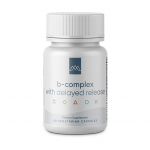
- Fish oil – Research shows supplementing with omega-3 fatty acids positively impacts numerous aspects of heart disease, including a lipid profile, inflammatory markers, and oxidative stress. [25] Even if you’re regularly eating wild-caught fish (most of us aren’t), taking a quality omega-3 fatty acid supplement can help lower inflammation and other risk factors for heart disease.
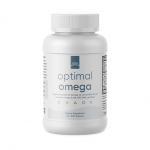
- Magnesium – Among its many roles (over 300 enzymatic reactions in fact!), this valuable mineral regulates blood pressure. Numerous studies link magnesium deficiency with heart disease-related conditions including hypertension and atherosclerosis. [26] Eat plenty of magnesium-rich leafy greens, nuts, and seeds. To get therapeutic amounts of this magnesium, you’ll probably need to supplement it.
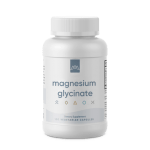
- Vitamin C – Studies associate vitamin C deficiencies with a higher risk of mortality from heart disease. Among its benefits, optimal vitamin C levels can potentially reduce atherosclerosis while improving your lipid profile, arterial stiffness, and endothelial function. [27] Vitamin C Complete combines effective amounts of this crucial vitamin with anti-inflammatory bioflavonoids including quercetin for additional heart-health support.
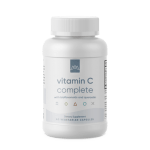
- Vitamin D – Several epidemiological studies find increased risks for heart disease, stroke, hypertension, and diabetes among people with low levels of vitamin D. [28] Therefore, vitamin D deficiencies indirectly impact heart disease by increasing related risk factors. Low levels can also increase inflammation and adversely impact cardiac muscle cells. [29] Vitamin D3 + Probiotics combines vitamin D in its most efficacious form with gut-supporting probiotics.
- Carnitine – This amino acid-type compound helps transport fatty acids into your mitochondria, the little energy plants within your cells. Your heart muscle cells have about 5,000 mitochondria per cell – far more than any organ. [30] L-carnitine can reduce factors that contribute to heart disease including oxidative stress, high blood pressure, and inflammation. [31]
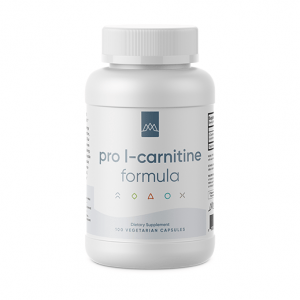
- CoQ10 – Derived from the word ubiquitous because this powerful antioxidant exists throughout your body, CoQ10 is found within your cells’ mitochondria or “energy plants.” This compound has been well-studied among patients with heart failure. [32] CoQ10 can increase energy production and reduce oxidative stress to support heart health. Our unique CoQ10 with Lipoic Acid formula blends CoQ10 and lipoic acid, which research shows can lower several inflammatory markers that contribute to heart disease and other problems. [33]
Talk with your healthcare practitioner about these and other supplements to improve and maintain your nutrition. Never discontinue or modify any medications or other advice without your healthcare professional’s consent.
While it might not sound incredibly romantic, focusing on heart health this Valentine’s Day — or really, any time of the year — means you support a vital muscle that supports your entire body. You’ll be able to enjoy that special someone for many Valentine’s Days to come!
After all, your heart beats around 2.5 billion times during your lifespan, pumping blood (along with other things like oxygen, fuel, and hormones) to every part of your body while removing metabolic waste products. [34] That’s a pretty important job to keep everything optimally functioning.
Supporting a healthy heart starts with what goes on the end of your fork or fingers. If that next bite includes dark chocolate, just choose the right kind and enjoy it!
References
- https://www.ncbi.nlm.nih.gov/pmc/articles/PMC5357630/
- https://www.ncbi.nlm.nih.gov/pmc/articles/PMC5357630/
- https://www.ncbi.nlm.nih.gov/pmc/articles/PMC3396114/
- https://www.ncbi.nlm.nih.gov/pmc/articles/PMC3396114/
- https://www.ncbi.nlm.nih.gov/pmc/articles/PMC3396114/
- https://www.healthline.com/health/polyphenols-foods
- https://www.ncbi.nlm.nih.gov/pmc/articles/PMC5465250/
- https://www.healthline.com/health/polyphenols-foods
- https://www.ncbi.nlm.nih.gov/pmc/articles/PMC5465250/
- https://www.ncbi.nlm.nih.gov/pmc/articles/PMC5465250/
- https://www.ncbi.nlm.nih.gov/pmc/articles/PMC4335269/
- https://www.ncbi.nlm.nih.gov/pmc/articles/PMC5465250/
- https://www.ncbi.nlm.nih.gov/pubmed/23893195
- http://theamericanchiropractor.com/atherosclerosis-and-low-back-pain/
- http://theamericanchiropractor.com/atherosclerosis-and-low-back-pain/
- https://www.ncbi.nlm.nih.gov/pmc/articles/PMC3188345/
- https://www.webmd.com/hypertension-high-blood-pressure/news/20070316/chiropractic-cuts-blood-pressure#1
- https://www.ncbi.nlm.nih.gov/pmc/articles/PMC5488800/
- https://www.sleepfoundation.org/excessivesleepiness/content/how-much-sleep-do-we-really-need-0
- https://www.sleepfoundation.org/sleep-news/how-sleep-deprivation-affects-your-heart
- https://www.ncbi.nlm.nih.gov/pubmed/22473079
- https://www.ncbi.nlm.nih.gov/pmc/articles/PMC4566450/
- https://www.webmd.com/heart-disease/guide/homocysteine-risk
- https://www.ncbi.nlm.nih.gov/pmc/articles/PMC3798927/
- https://www.ncbi.nlm.nih.gov/pmc/articles/PMC3712371/
- https://www.ncbi.nlm.nih.gov/pmc/articles/PMC4586582/
- https://www.ncbi.nlm.nih.gov/pmc/articles/PMC5000725/
- https://www.ncbi.nlm.nih.gov/pmc/articles/PMC3449318/#:~:text=Vitamin%20D%20has%20received%20widespread,stroke%2C%20hypertension%2C%20and%20diabetes.
- https://www.ncbi.nlm.nih.gov/pubmed/19601865
- https://heartmdinstitute.com/health-and-wellness/what-are-mitochondria/
- https://www.ncbi.nlm.nih.gov/pubmed/29241711
- https://www.sciencedirect.com/science/article/pii/S0019483217308696
- https://www.ncbi.nlm.nih.gov/pmc/articles/PMC5989440/
- https://www.health.harvard.edu/topics/heart-health
